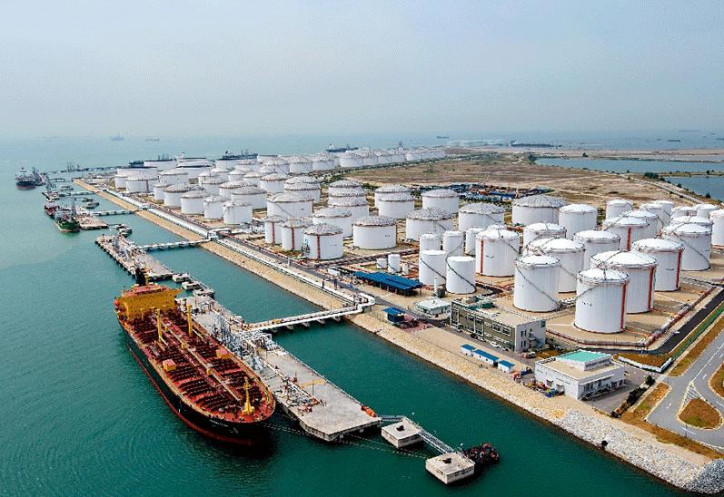In early June, a Chinese-owned supertanker abruptly went dark in the Indian Ocean, the tracking system signalling its course apparently deactivated.
It was not the first ship to vanish from the monitors. The deactivation of transponders that generate a unique ID issued to ships by the International Maritime Organisation (IMO) has become increasingly familiar in recent weeks to the companies that track tankers.

The Trump administration has stepped up its efforts to track tankers linked to China’s biggest state-run oil company in response to signs that the vessels are helping to transport Iranian crude in defiance of US sanctions against Teheran.
“They are hiding their activity,” Samir Madani, the co-founder of TankerTrackers.com, told the New York Times in July. “They don’t want to broadcast the fact that they have been in Iran, evading sanctions. It’s that simple.”
The case of the Pacific Bravo, which the US had flagged up as a suspected sanctions breaker, is doubly intriguing. After its unique tracker identifying number disappeared, it reappeared more than a month later attached to a ship listed with a different name, changed in an apparently clumsy effort to disguise it.
Other Chinese-owned tankers, several of which are owned by the Bank of Kunlun according to media reports and evidence from tracking companies, have used different tactics. Some have been captured on satellite images interacting with Iranian ships.
The events unfolding on the maritime trade routes point to a wider story, of the increasingly complex convergence of two of the Trump administration’s most pressing foreign policy concerns.
While Washington seeks to block Iranian oil exports as part of a “maximum pressure” campaign to force Tehran to negotiate over its nuclear and security policies, China – which is locked in its own escalating trade war with the US – appears to be throwing Iran a significant lifeline.
Iran for its part has encouraged China. The country’s first vice-president, Eshaq Jahangiri, told a visiting Chinese official recently that Tehran expected Beijing to be more active in buying Iranian oil.
“I think the two issues have been converging for a while,” Ali Vaez, an Iran analyst with the thinktank Crisis Group said.. . “The main reason that China initially complied with the US … policy and significantly reduced oil imports from Iran was because it hoped it could be a card that bore some dividends in the trade negotiations. As soon as those talks ran into dead lock, China turned around and resumed oil imports from Iran.”
Efforts to evade the sanctions have so far been limited, Vaez and other analysts watching the issue closely say the messaging is clear: China “can make or break the US maximum pressure policy”.
China’s change of tack in turn prompted fresh US sanctions in July targeting the Chinese crude oil importer Zhuhai Zhenrong, which accounts for more than 60% of China’s trade with Iran, for “violating US law by accepting crude oil”.
Vaez notes, however, that access to Iranian oil is not simply a question of leverage for China, but reflects its long-term strategic aim not to be complicit in US moves it fears may lead to regime change in Iran.
“China has a complex calculation regarding Iran. It is the only oil-rich country where the US does not have a foothold. From the point of view of China’s energy needs, Iran is very important,” he said. “But on the other hand China has bigger fish to fry with the US with trade negotiations and it needs to balance relations with other oil-rich countries like Saudi Arabia.”
Sanam Vakil, a senior researcher at Chatham House, believes the subterfuges currently involved reflect a desire by both China and Iran to avoid an overt confrontation over the issue, as Tehran becomes ever more “creative” about its oil exports.
For Vakil, one of the key takeaways has been the Trump administration’s inability to manage the overlapping crises it has fuelled. “It’s unfortunate for US foreign policy that it has so many interconnected crises. It’s impossible for the US government to meet all of of its objectives,” he said.
Vaez echoes the sentiment, adding that Chinese imports of Iranian oil may also have discreet support in European capitals still committed to keeping the Iran nuclear deal alive despite Washington’s unilateral withdrawal.
“I’m not sure the Trump administration has the bandwidth or the strategic understanding to connect all these dots. That’s why its been own worst enemy. Too many of its main files, including North Korea and Iran, are dependent on how the Trump administration treats China.
“In practice, however, this is an administration which, when offered the opportunity to fight too many fires at same time, will jump at it.”
Source: The Guardian